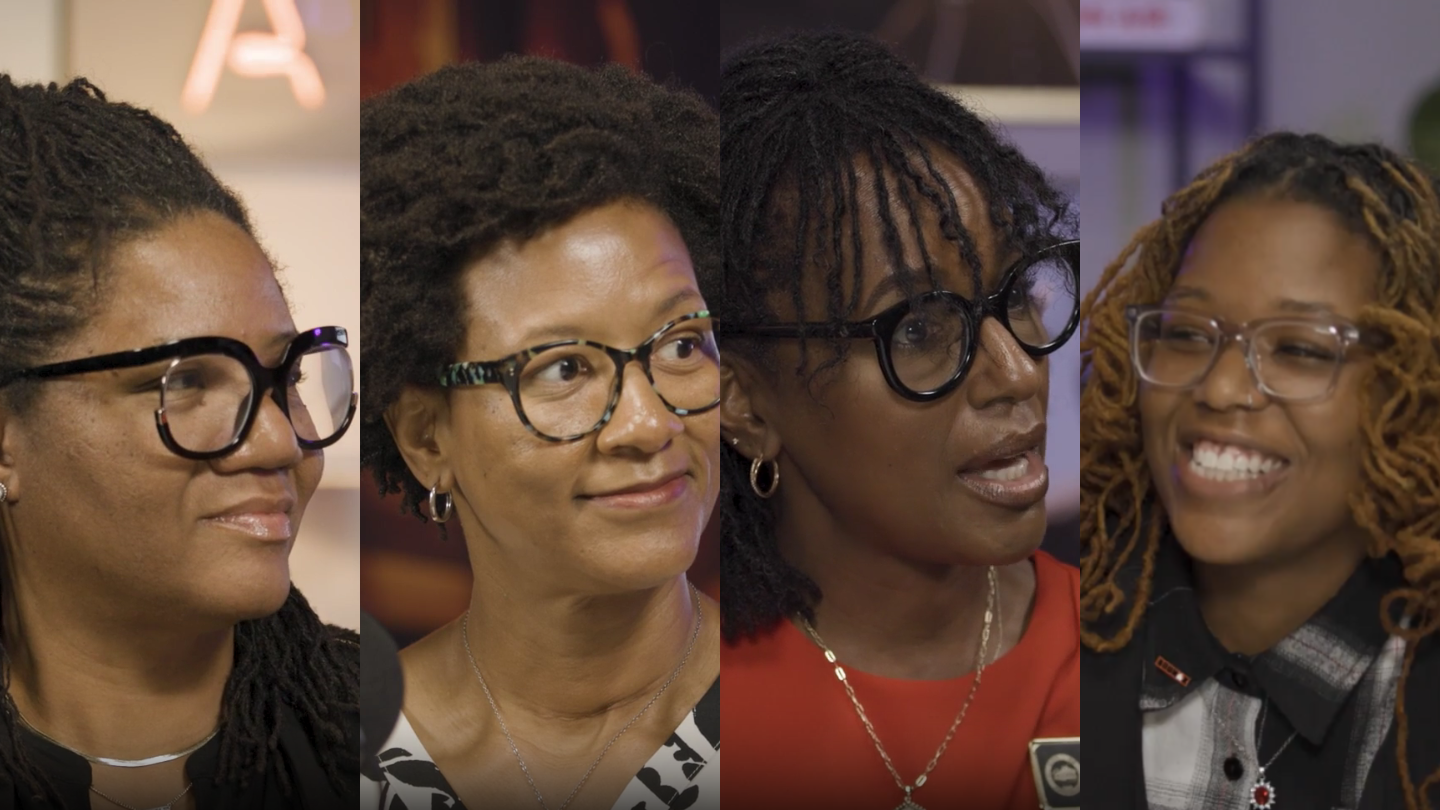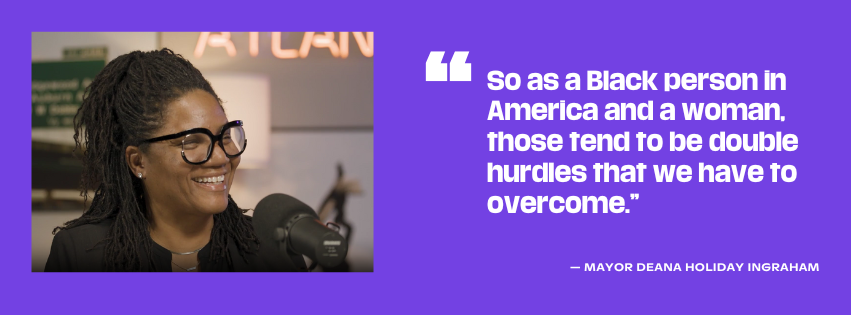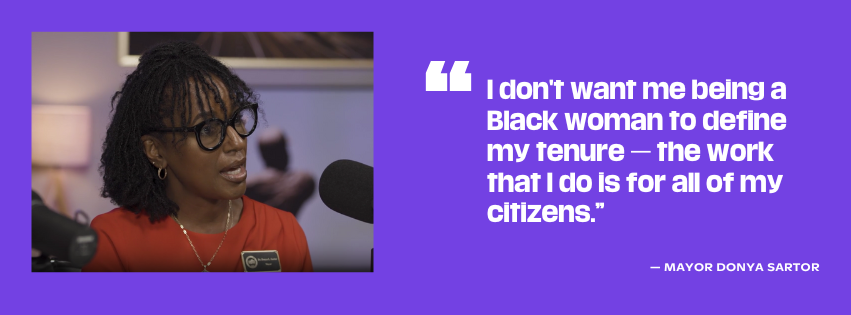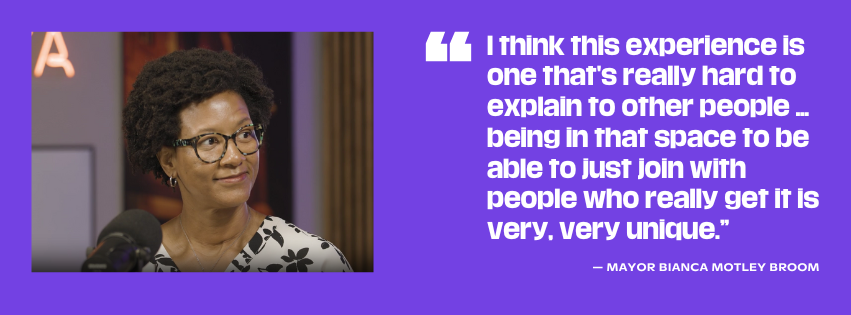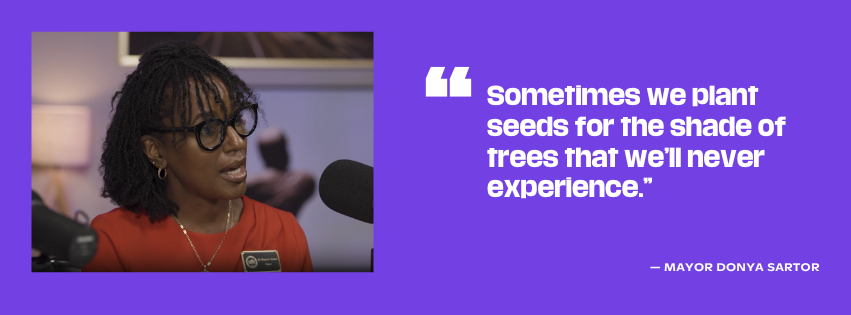Vice President Kamala Harris could make history by becoming the first woman of color to serve as president of the United States.
The election is less than two weeks away, and here in Georgia, more than 10 Black women serve in the top leadership position as mayor of their cities.
Below I-20, some of these mayors are having conversations about women’s leadership as they watch Harris run for the highest position in the nation. Harris’ roots stem from her mom, who was Indian, and her dad, who is from Jamaica.
Mayors from the cities of College Park, East Point and Jonesboro joined WABE for a chat about their experiences as Black women in power.
The unique challenges Black women face in politics
These ladies believe they face challenges specifically — as Black women — because of double standards or societal rules unfairly applied to different groups of people.
Bianca Motley Broom serves as the first Black person and woman mayor of College Park. She was elected after beating her white predecessor, who served as mayor for over two decades.
“We are overly prepared for what we do,” Motley Broom said. “Yet we still face those questions about ‘Does she know what she’s doing? Does she have the skill set to do this work?’ And that can be disappointing because I don’t think those questions have been asked of those who have sat in the seats before us. But I think we prove it every day.”
Deana Holiday Ingraham is serving her second term as the 34th mayor of East Point. East Point is no stranger to women in leadership; the city has had at least three other female mayors over the years.
Holiday Ingraham says when it comes to those hurdles, it can be a balancing act as the mayor.
Dr. Donya Sartor is the first Black woman mayor to serve Jonesboro. She believes that Harris is shedding light on what women face at the highest levels.
“I think to have a woman in leadership at the highest office is inspiring and empowering, but it also helps bring to light that Black women, women of color face when we’re in any type of position, because now we’re going to have someone at the top that’s going to be scrutinized, that the finish line is going to be pushed even further,” Sartor added.
Views on identity and Kamala Harris
According to NPR, Harris is limiting the dialogue on how she identifies racially because what’s important to her are the issues people face.
The three mayors believe that the vice president is straightforward about who she is when it comes to her culture. Harris attended Howard University and is a member of Alpha Kappa Alpha, a Greek sorority within the Divine Nine historically Black Greek-letter organizations.
“She shows up as a Black woman every day. Why talk about it,” Holiday Ingraham said. “She is probably the most qualified person who’s run for the office with the very level of experience that she’s had. I think she’s leaning into her experiences.”
As the first in her role, Sartor says there’s more to it than making history.
Sartor is the newest mayor among the trio. Her stance as a city leader aligns with Harris, citing the importance of qualifications over identity and race.
How to cope as a Black woman mayor
According to Motley Broom, the mayors tend to lean on each other, like a sisterhood, for support in times of hardship. The mayors use group chats, or messaging platforms with multiple people, to communicate with each other and other leaders on the southside.
As Motley Broom says, these groups allow Black women leaders to share their experiences with each other.
Holiday Ingraham believes faith is also important.
“I say I follow God’s plan, not man’s plan. And so getting the information, praying about it, thinking through it, and then making sure that as we do things, we’re doing things with people and not to them,” Holiday Ingraham said.
Encouraging the next generation of Black women leaders
The trio believes there should be more Black women engaging in politics at the local level. East Point’s Holiday Ingraham encourages Black women to “do it if you really feel like there’s a call on you to serve.”
College Park’s Motley Broom agrees.
“I think there are so many opportunities to make your communities better. So dive in because we don’t have enough people, especially on the local level, who are willing to be in the trenches because sometimes it is being in the trenches,” Motley Broom added.
For Jonesboro’s Sartor, serving her community also means learning to be okay with not seeing the impacts of her efforts.
“It might be a generation or two behind me that benefit from it, and I have to find solace and satisfaction in that,” Sartor added.
